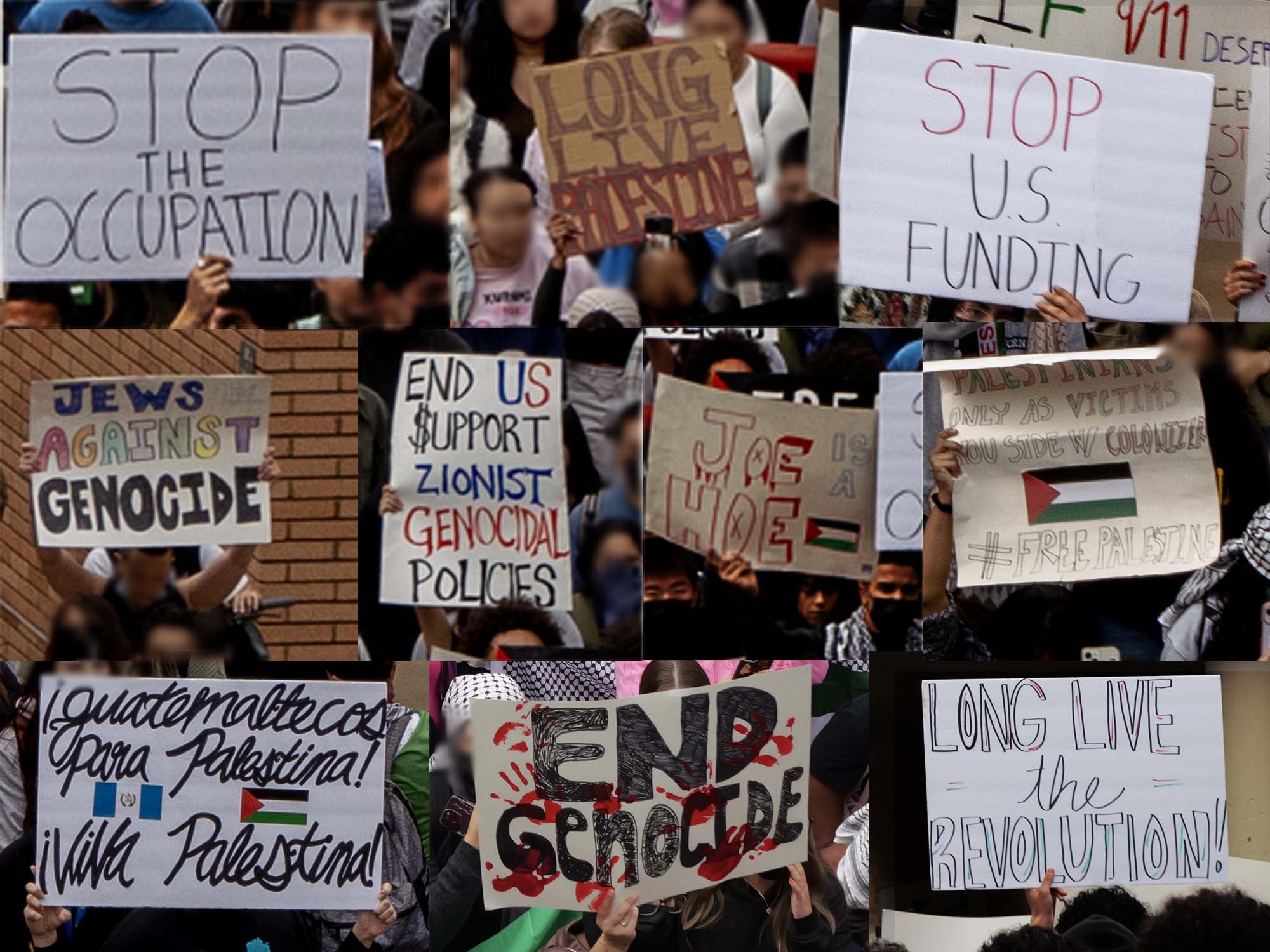On Oct. 25, 2023, from 9:00 a.m.- 8:00 p.m, the University of California Riverside’s (UCR) Memory and Resistance Laboratory staged a collective reading of Palestinian poet Mahmoud Darwish’s “Memory of Forgetfulness” in an event entitled Score for Sumud. Co-sponsored by UCR’s Center for Ideas and Society, the Department of Gender and Sexuality Studies, Dance, and Media and Cultural Studies, as dictated in the Score for Sumud website, hoped to bring “nuance and complexity to current events where a long history of Israel’s occupation, apartheid and intentional ethnic cleansing of Palestine is being silenced, forgotten, and erased by most journalistic, governmental and popular discourse.”
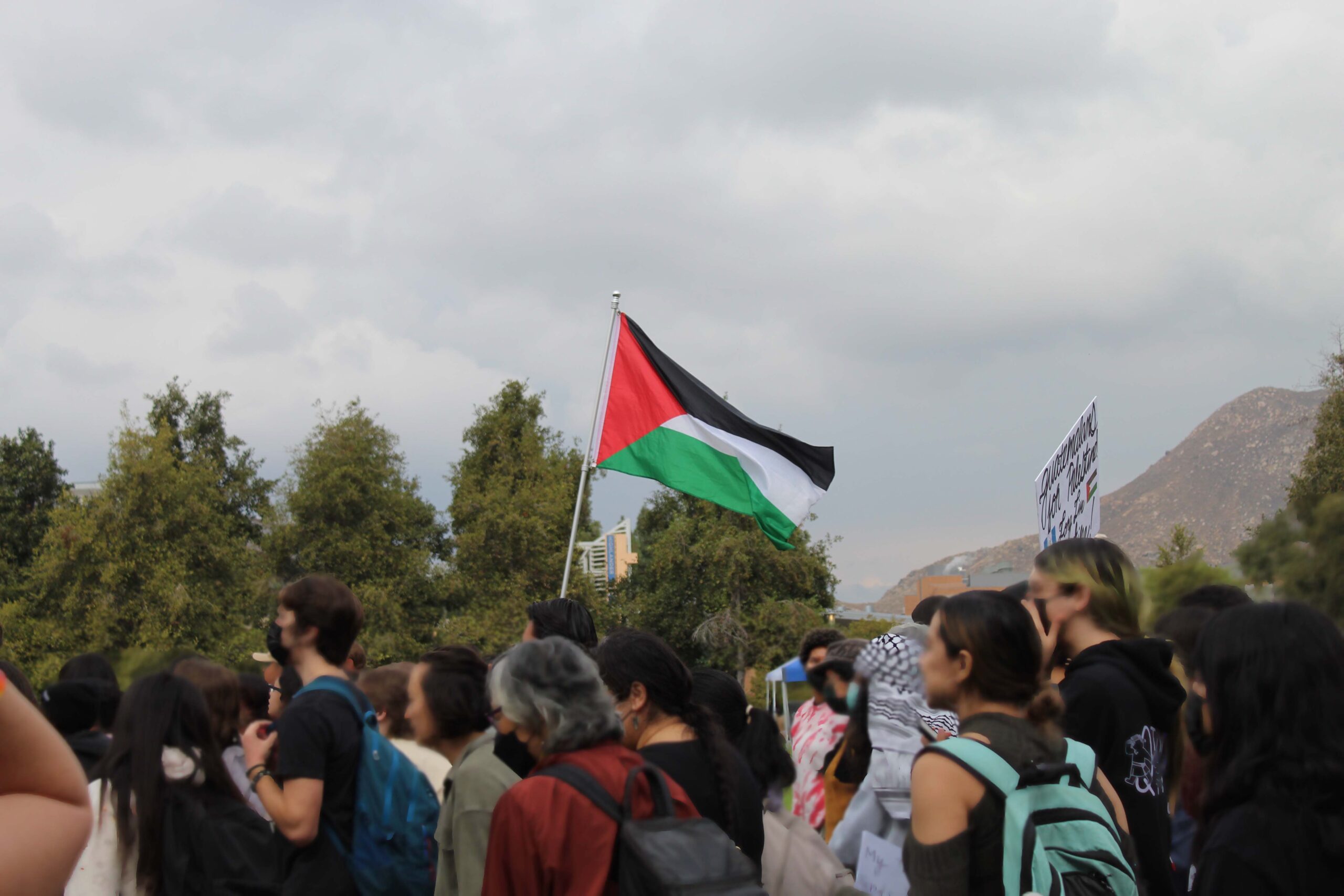
Score for Sumud opened with an introduction to what sumud means by co-organizer Mark Minch-de Leon, assistant professor of English at UCR. Minch-de Leon describes sumud as “an Arabic term that means steadfastness or perseverance. It also has strong resonances with the Indigenous political praxis of refusal, or refusal to consent to being colonized. It is a central value of Palestinian resistance to Israeli occupation.” Minch-de Leon emphasized that sumud is “The undefeatable weapon, the will of Palestinians.”
Following the introduction to sumud, Co-organizer Latipa, Associate Professor in the Department of Media and Cultural Studies and Director of the UCR Memory and Resistance Laboratory, presented her short film “Gaza before the Law.” According to the Score for Sumud website, the film details the story of Akram Abursharar, a Palestinian-American lawyer based in Orange County, California, who filed a lawsuit against the United States (US) government.
The lawsuit claimed that “US military support of Israel violates the Leahy Amendment to the Foreign Assistance Act, a 1961 law which bars the US from giving military aid to any country that commits human rights violations … The case was dismissed by the US Federal Court. ‘Gaza Before the Law’ deals with the limits to law in matters of politics and how the violence of war and occupation is experienced by the Palestinian diaspora.”
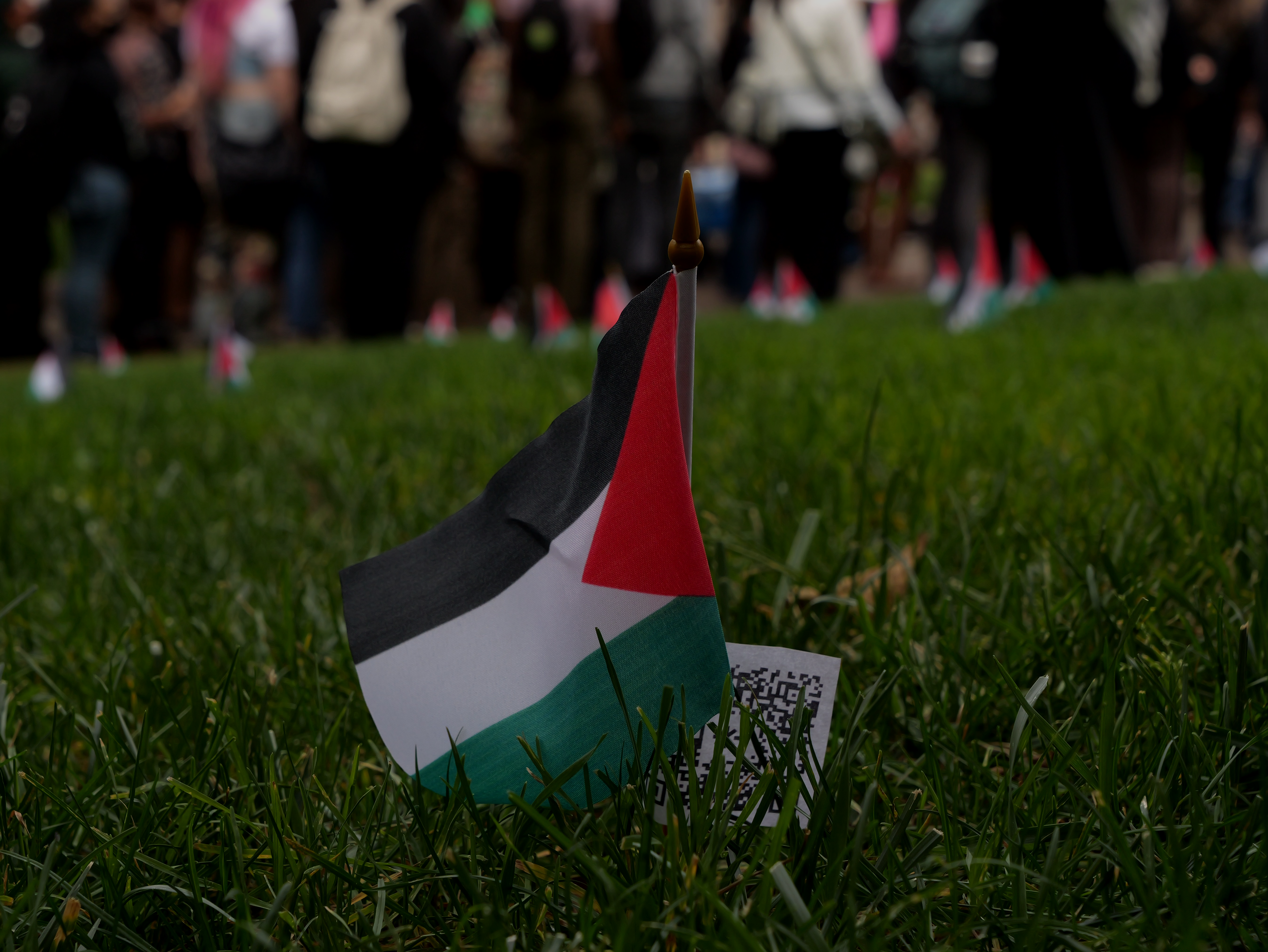
The event continued with a literary reading by the author of “Bloodlines,” meital yaniv, a written prayer from an ex-Israeli soldier for the liberation of the land of Palestine. According to yaniv, “When I was a little over 18 years old, I disgracefully left the Israeli army in the middle of my service and almost took my life as a way to cope with the consequences … My lineages birthed famous war heroes and pillars for the state of Israel, and I was bred to continue the line. Since leaving the army I have dedicated decades of my life to the undoing, exploring and reimagining of the brainwashing. With a commitment to reflect and share all of my findings through my practice. ‘Bloodlines’ was birthed from that fire. It is a detailed, rooted, urgent and embodied journey of why we must bring the Israeli identity to its loving and caring death.”
Associate Professor and Chair of Comparative Literature and Arabic at UCR, Jeff Sacks, opened the collective reading of “Memory for Forgetfulness” by Mahmoud Darwish. This poetry book is described by the event organizers as being set during “the 1982 Israeli invasion of Lebanon and the shelling of Beirut … Mahmoud Darwish vividly recreates the sights and sounds of a city under terrible siege. As fighter jets scream overhead, he explores the war-ravaged streets of Beirut on Aug. 6. ‘Memory for Forgetfulness’ is an extended reflection on the invasion and its political and historical dimensions. It is also a journey into personal and collective memory.”
Co-organizer and Associate Professor of Gender and Sexuality Studies Crystal M. Baik, described her experience during the reading, stating, “The reading was so moving to hear. Something I realized during and after the reading is poetry is not a luxury. It is a form of liberation that is also about resistance and refusal … Something I found so important was that even when we are in moments of war, we are still talking about people; there were moments we could laugh together throughout the reading while still processing grief.”
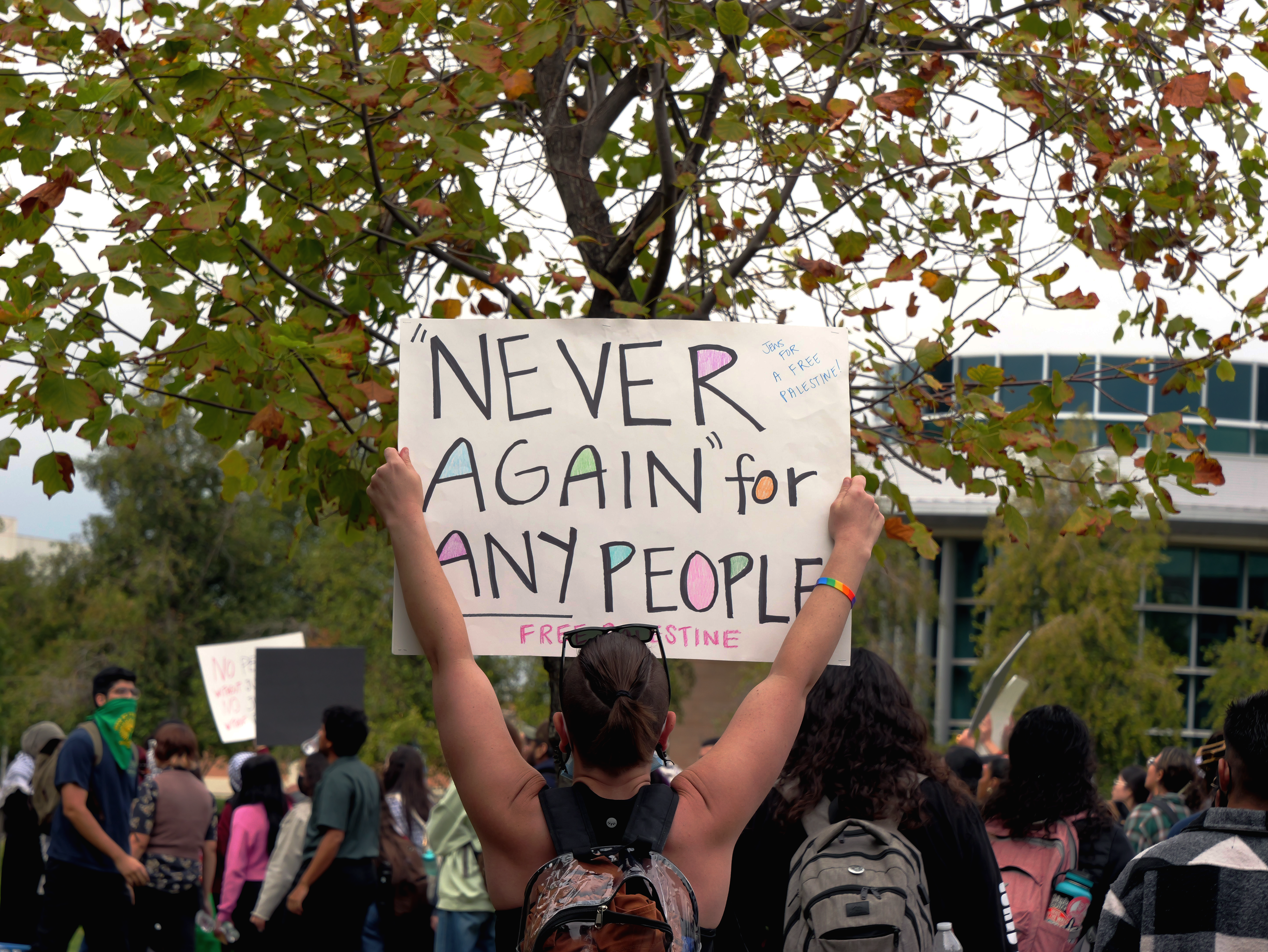
“Score for Sumud” broke for the campus walkout hosted by UCR’s chapter of Students for Justice in Palestine. SJP’s walkout began at Hinderaker Hall at 12:30 p.m. and concluded at 2:00 p.m. after marching through the HUB, around the Bell Tower and back to Hinderaker Hall.
Following the walk-out, the collective reading of “Memory for Forgetfulness” continued from 2:15 p.m. – 7:30 p.m. Latipa hoped that the event would offer “an invitation to linger in the nuance of Darwish’s poetics, and in so doing to open up this vast space of freedom and resistance that lives within the Palestinian spirit.”
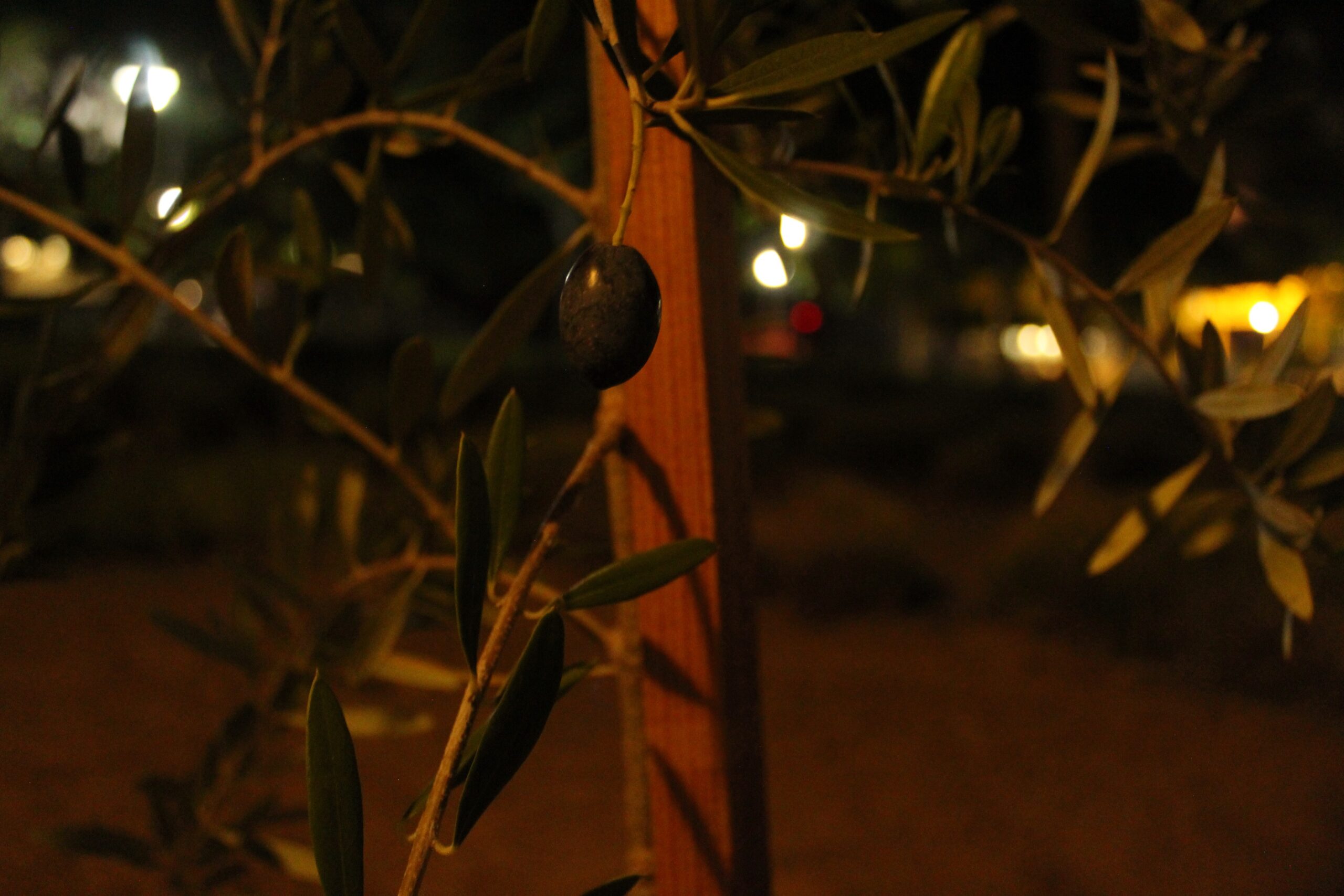
The event closed with the planting of an olive tree. The olive tree was draped in a kufiya, traditional Palestinian headwear that has now become an international symbol of solidarity with Palestine, as it sat center in the room, According to the United Nations Office for the Coordination of Humanitarian Affairs (OCHA), “Some families have trees that have been passed down to them for generations and the olive harvest season in October bears a socio-cultural meaning where families come together to harvest olive trees bearing in mind that their forefathers and mothers had tended to the same trees several years ago.”
The organizers of Score for Sumud hope the olive tree will serve as a “sign of peace and abundance” for the campus community. meital yaniv elaborated on this stating how olive trees are a “representation of the principles of sumud.”
When asked if she had anything else to comment or wanted to reiterate to the campus community, Latipa stated, “Chancellor Wilcox on our UCR campus has a responsibility to publicly address the anguish that so many students, staff and faculty are feeling, some of whom are directly affected by the circumstances. He must make sure that there is a campus climate in place where students feel that there is room for their rage and grief. He must make sure that students are not targeted or intimidated for voicing views that depart from the pro-Israel narrative that saturates most discourse in the United States … My hope is that he will read this and understand how high the stakes are and that he has the agency to create some semblance of refuge, even as the very fabric of existence is being shredded by Israel’s crimes against humanity.”

